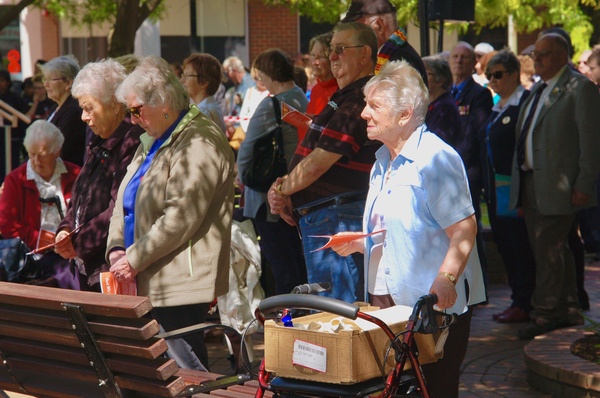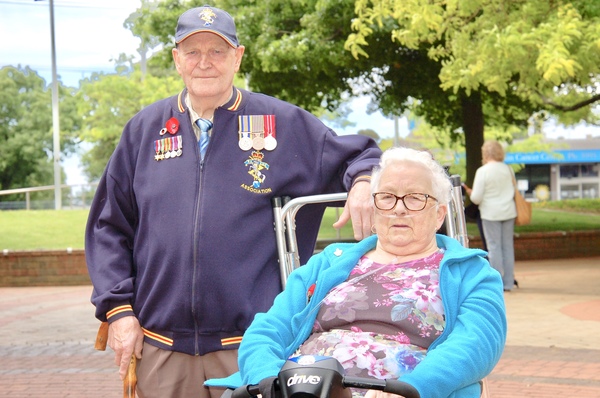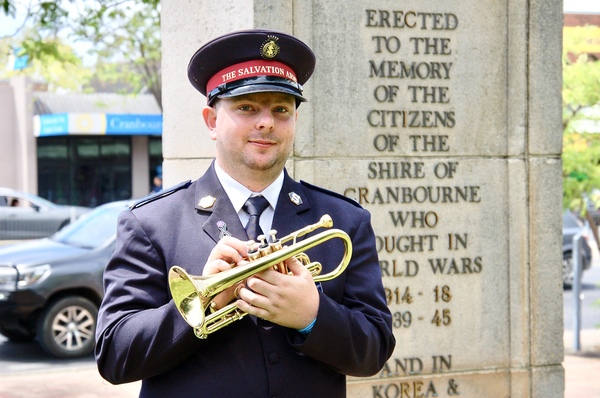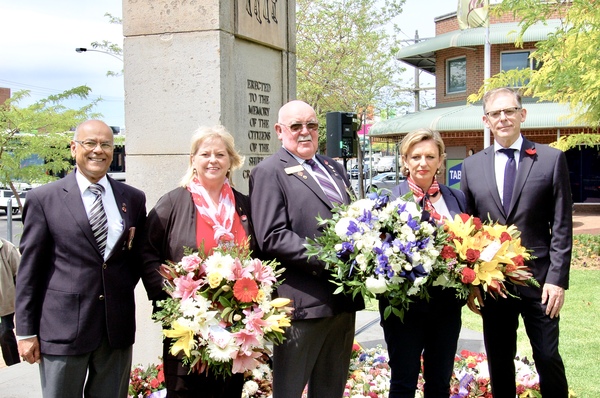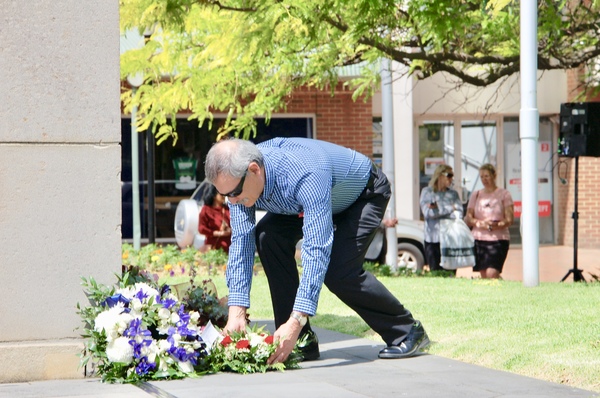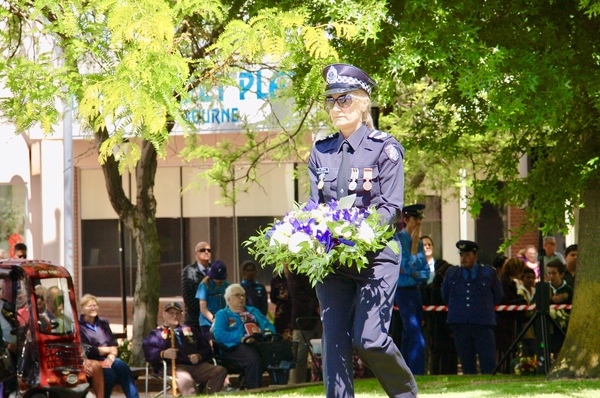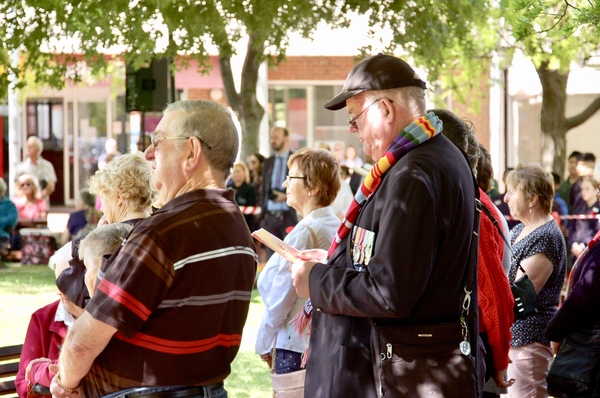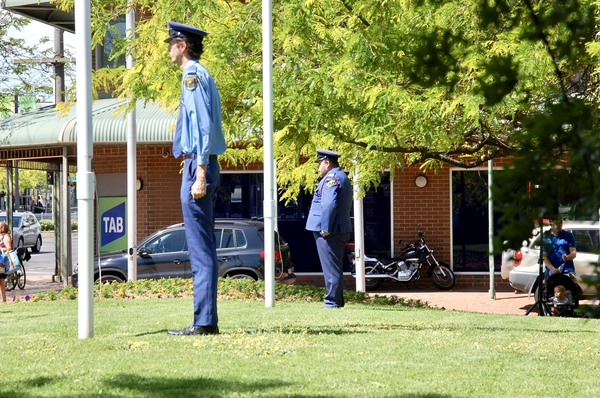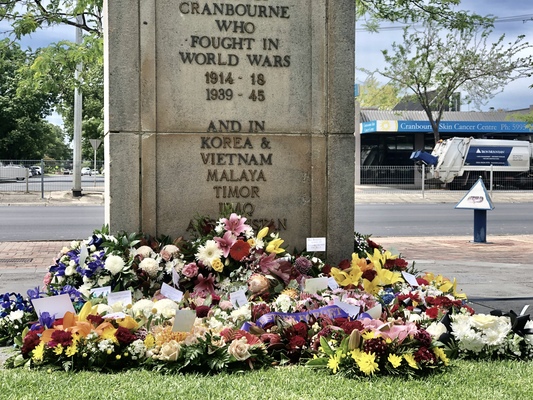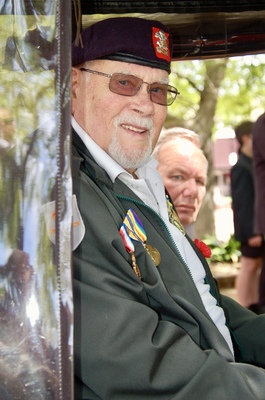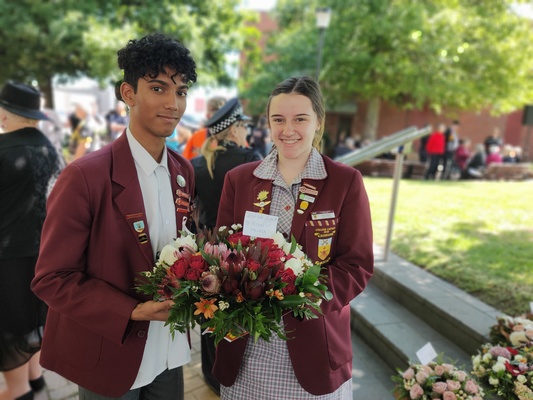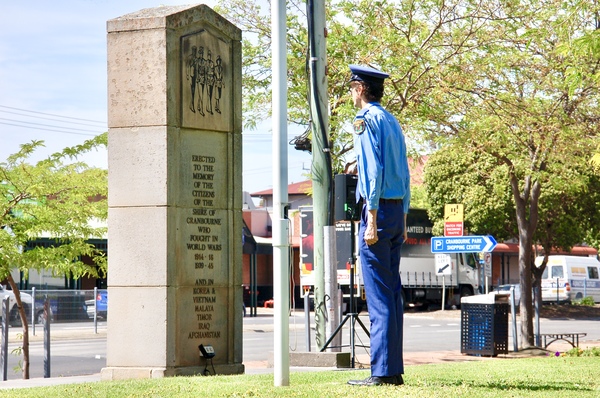
By Brendan Rees
Kevin Broomhall remembers being on edge while guarding airfields during the New Guinea conflict in the 60s and 70s.
The 77-year-old former Australian army sergeant was one of about a hundred people who gathered around the Cranbourne cenotaph for Remembrance Day.
Under blue skies the crowd paused as a rendition of the Last Post a minute’s silence fell over Greg Clydesdale Square on Monday 11 November at 11am.
On the eleventh day of the eleventh month – November- at 11am marks the time World War I officially came to an end in 1918.
In his address, Dandenong Cranbourne RSL sub-branch senior-vice president Bill Shepherd paid tribute to the fallen.
“Today we remember the service and sacrifice of all men and women who fought for us,” he said.
“The loss, the devastation and the tragedy of the First World War remains with us 101 years after it came to an end.
“Australia’s sacrifice in 1917 was the greatest our country would ever pay in wartime. More than 76,000 Australians were killed, wounded or missing on the Western Front in 1917”.
Mr Shepherd also spoke of a Belgium born Cyrille Knockaert who immigrated to Australia in 1911 in search of a new life.
After just a few weeks of becoming a citizen, he was enlisted in 1915 to fight for his new home. But on 9 August 1918, Cyrille was wounded in the side during the Battle of Amiens. Two days later died aged 23.
Community groups, politicians, school children along with members of the public were invited lay wreaths at the ceremy, taking a moment to reflect.
Dressed in a navy jacket and cap with rows of medals on his chest, Kevin Broomhall said for him and his wife, Mary, “We don’t glorify war in any form or fashion, what we do is: remember people who may have succumbed to that”.
He served with the Royal Australian Electrical and Mechanical Engineers of the Australian Army for 15 years and was posted to New Guinea.
“We were flying the flag for Australia building air strips… it was my prime job to keep the engine running on the aircraft,” he recalled.
“Indonesia threatened to take over the whole of New Guinea, Papua, the whole lot – they got West New Guinea.
“Over time it was a bit nerving because … radios went blank, you didn’t know what to do,” he said.
The ceremony concluded with a rendition of the national anthems of Australia and New Zealand which was sung by Heather Thorne.

